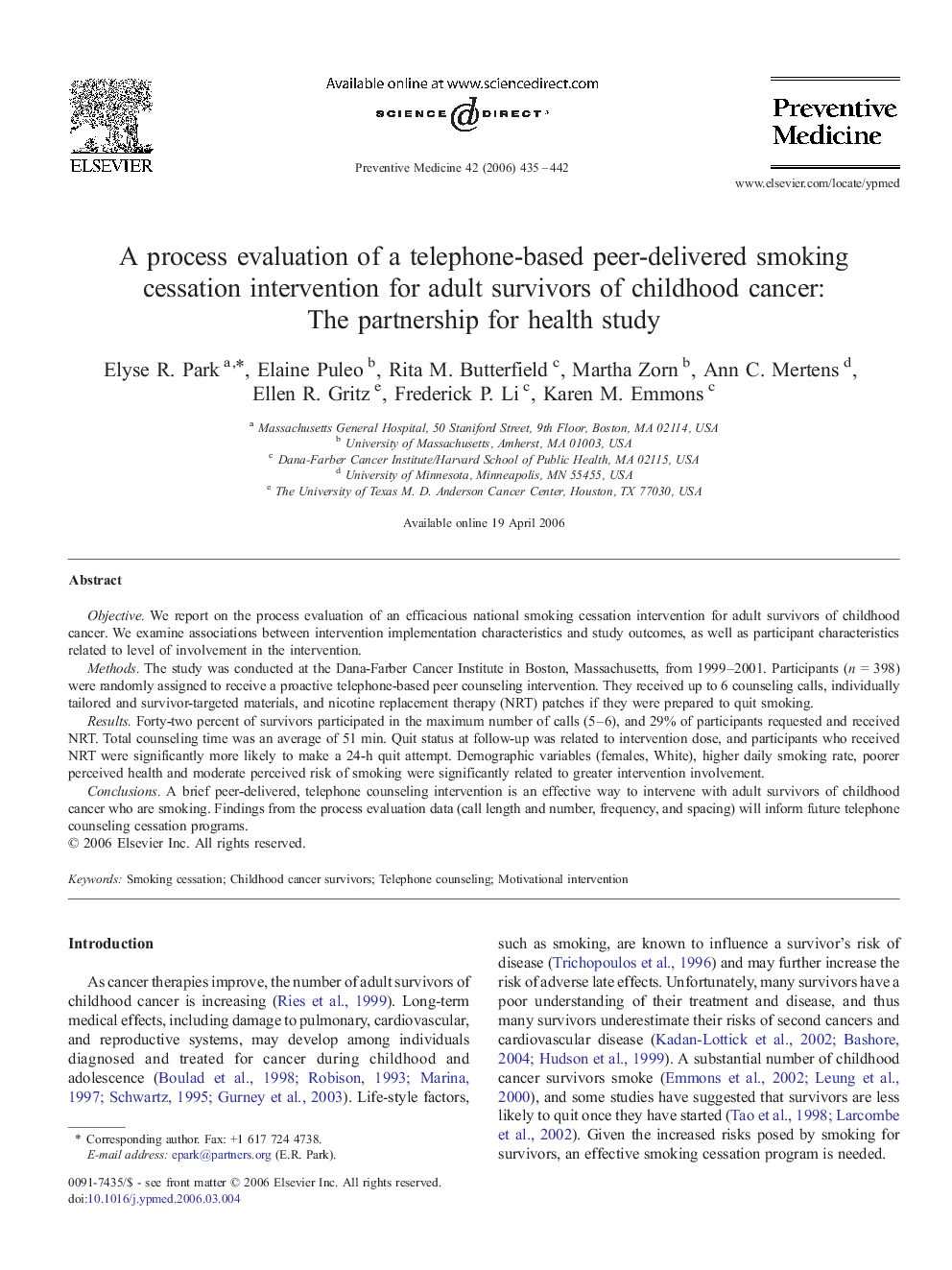| Article ID | Journal | Published Year | Pages | File Type |
|---|---|---|---|---|
| 3101911 | Preventive Medicine | 2006 | 8 Pages |
Objective.We report on the process evaluation of an efficacious national smoking cessation intervention for adult survivors of childhood cancer. We examine associations between intervention implementation characteristics and study outcomes, as well as participant characteristics related to level of involvement in the intervention.Methods.The study was conducted at the Dana-Farber Cancer Institute in Boston, Massachusetts, from 1999–2001. Participants (n = 398) were randomly assigned to receive a proactive telephone-based peer counseling intervention. They received up to 6 counseling calls, individually tailored and survivor-targeted materials, and nicotine replacement therapy (NRT) patches if they were prepared to quit smoking.Results.Forty-two percent of survivors participated in the maximum number of calls (5–6), and 29% of participants requested and received NRT. Total counseling time was an average of 51 min. Quit status at follow-up was related to intervention dose, and participants who received NRT were significantly more likely to make a 24-h quit attempt. Demographic variables (females, White), higher daily smoking rate, poorer perceived health and moderate perceived risk of smoking were significantly related to greater intervention involvement.Conclusions.A brief peer-delivered, telephone counseling intervention is an effective way to intervene with adult survivors of childhood cancer who are smoking. Findings from the process evaluation data (call length and number, frequency, and spacing) will inform future telephone counseling cessation programs.
